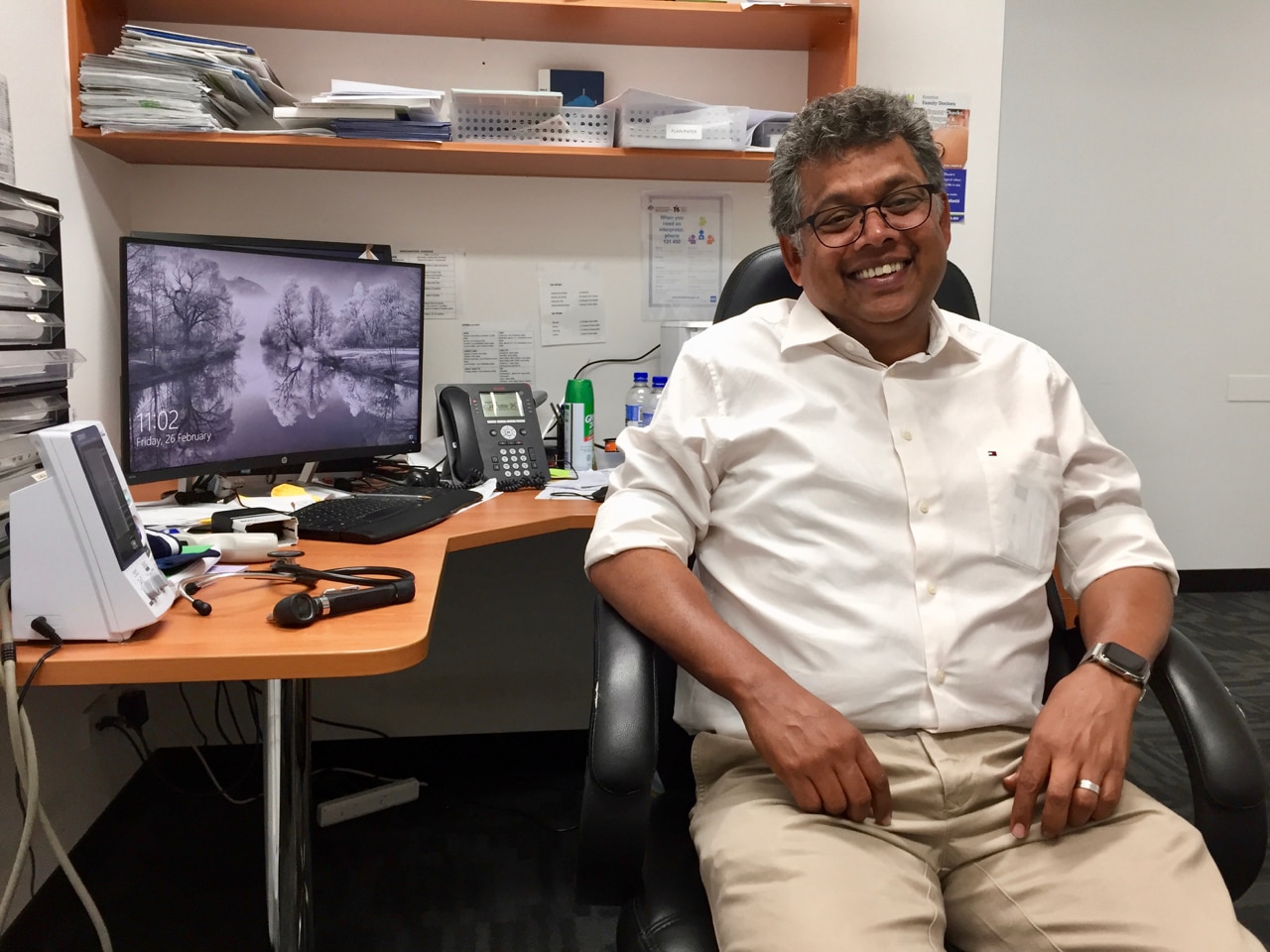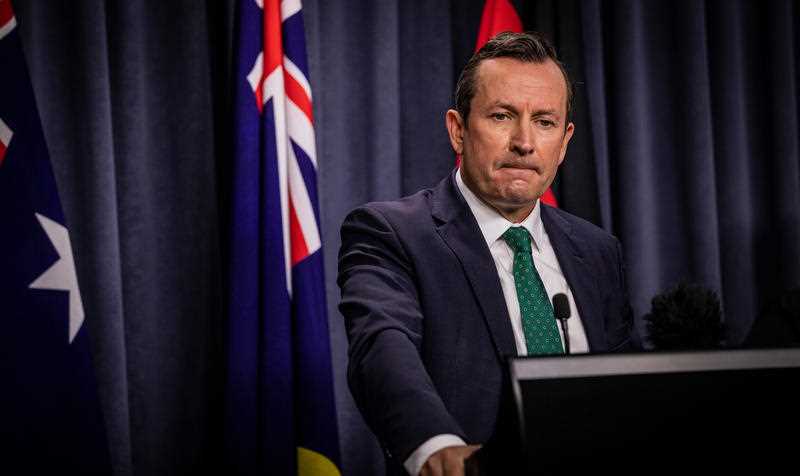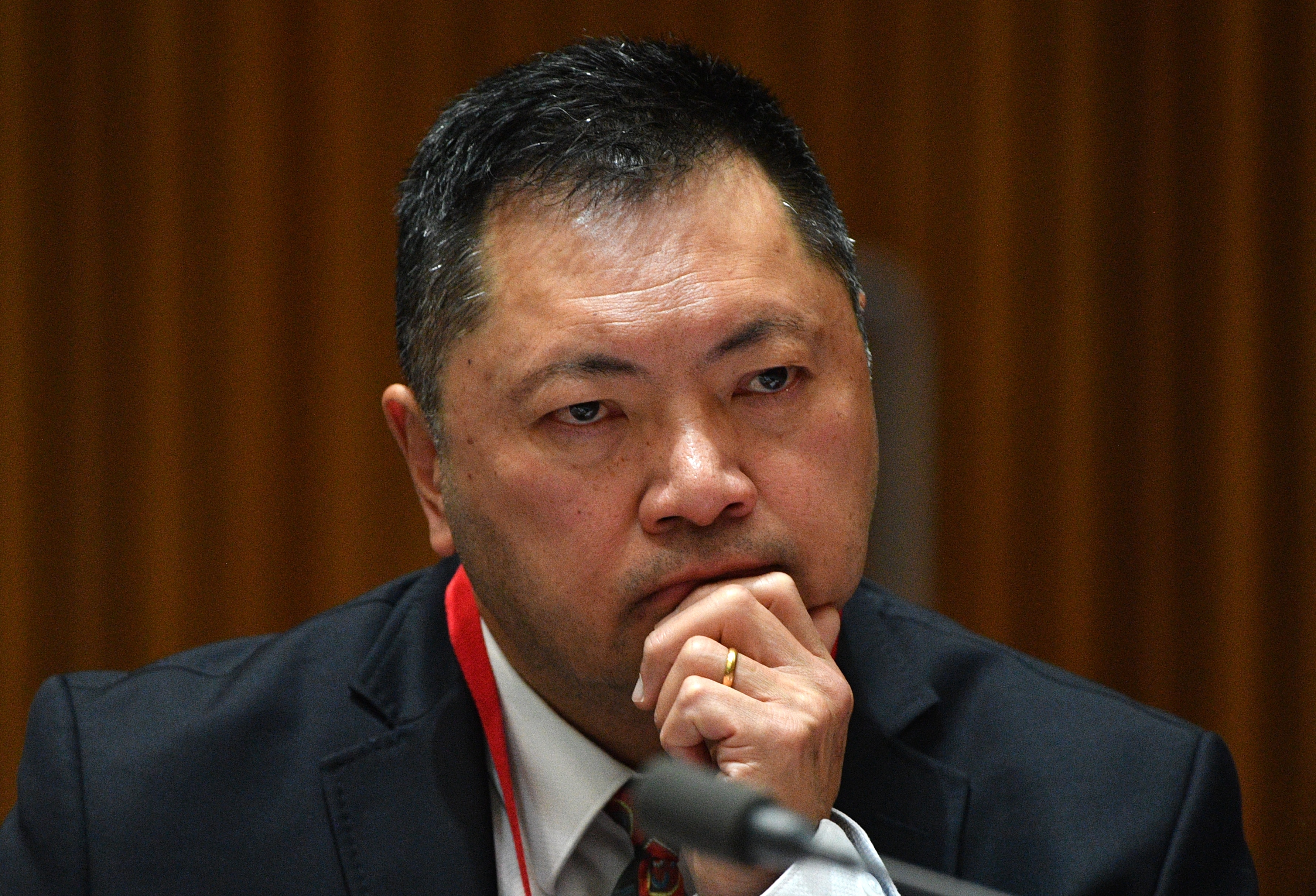Aaron Sawmadal’s path to the doors of Western Australia’s parliament is different from any member currently serving there. He spent much of his life living in a refugee camp during the First Liberian Civil War, before moving to Australia in 2006 at the age of 27.
A cybersecurity analyst by profession, Mr Sawmadal has spent the past 15 years establishing community organisations to help new African migrants resettle in Perth’s north-eastern suburbs.
“I still want to continue this work. I still want to give hope and aspirations to this community,” he tells SBS News. “I want to make sure as many people come into middle class like me. From the downtrodden class to the middle class, I want to take many people with me.”
His nomination to represent the Liberal Party of WA in the electorate of Mirrabooka at this weekend’s state election, he says, is an extension of his volunteer work.
“When I was volunteering, there were so many things I couldn’t do. Being a local representative, I can do those things,” he says.
The only problem is that Mirrabooka is a safe Labor seat, held by the popular Mark McGowan-led government on a massive 23 per cent margin. Unique as Mr Sawmadal’s experiences are, it’s highly likely he won’t be elected to WA’s next parliament.
Further south in Riverton, Labor candidate Dr Jagadish Krishnan has a much better chance. Riverton is held by the Liberal opposition by 4.2 per cent, but surging support for Mr McGowan during the COVID-19 pandemic could see it flip.
For “Dr Jags”, as he prefers to be called, it would be the latest chapter in a migrant success story that started in the tea plantations of Kotagiri, in the Indian state of Tamil Nadu.
“I come from a farmer’s family. I grew up amongst the tea bushes, climbing trees and plucking oranges and eating fresh fruits. That was my childhood,” he says.
“My kids tell me I do have a strong accent, of course, I’m going to be dying with it. I’ve been very fortunate to be here, raise my family, build my career and get the best for my kids.”
Dr Krishnan completed his undergraduate medical qualifications in India, before arriving in Australia in 2006. He worked in the suburb of Byford as a GP before buying a medical clinic of his own. He has since grown his business interests to include ownership of about 10 other medical practices.
“I am new to politics but I am very old when it comes to working hard,” he says. “I have doorknocked the entire electorate. I’ve been through a few pairs of shoes and lost some weight, which my wife is happy about.”
“I know the electorate well. We have created a plan, and hopefully, as part of the McGowan Labor government, I will be able to deliver that to the people of Riverton.“
Lack of diversity
Dr Krishnan doesn’t see race or ethnicity as a barrier to building a successful life in Australia. But the reality is that if he does win at this weekend’s election, he will be one of the few members of parliament from a culturally and linguistically diverse (CALD) background.
According to 2016 Australian Bureau of Statistics data, nearly one-quarter of all Western Australians speak a language other than English at home and about 40 per cent of people were born overseas.
SBS News asked the four largest political parties what percentage of their pre-selected candidates came from a CALD background. The responses showed, across the board, the candidates selected did not represent the cultural diversity of the state.
Fifteen per cent of WA Labor candidates and 19 per cent of Liberal Party of WA candidates were born overseas. But that includes a significant cohort born in England, Scotland, Ireland or other European countries.
Neither Labor nor the Liberals keep data on how many candidates speak a language other than English at home.
Only the Greens WA were able to answer how many speak a language other than English at home – nine candidates – which includes speakers of Malay, Punjabi and Tagalog.
The Nationals WA reported two candidates were born overseas, in Germany and the United Kingdom.
WA Labor could win about 50 of the state’s 59 seats in its legislative assembly (lower house) but will likely bring only about five members of Asian or African heritage to the parliament.
Divina D’Anna is a Yawuru, Nimanburr and Bardi woman, and Labor candidate for the Kimberly. She could be the party’s only Aboriginal MP, despite important and new Aboriginal heritage laws to be voted on by the new parliament.
Ways forward
A lack of cultural diversity in politics isn’t unique to WA or to any one party. Australia’s Race Discrimination Commissioner Chin Tan says political leaders from non-European backgrounds are lacking at all levels of government across the country.
“If you looked at the federal parliament, four per cent of MPs have at least one parent from a non-European background, compared with 24 per cent of people in the general population,” he says.
“Some state parliaments do a better job than others, but by and large, the conclusion is that they don’t reflect the communities that we live in.”
He says that undermines basic principles of democracy.
“Having that cultural diversity is an element of a democratic framework that reflects community attitudes and views. Any parliament that doesn’t have a diversity of members is not going to be doing its job very successfully.”
Some political parties have introduced quotas to improve gender representation.
Mr Tan says he does support political parties adopting quotas for people from CALD backgrounds but political parties need to invest more time and resources nurturing emerging leaders in communities at a grassroots level.
NITV: Aboriginal voters targeted in WA prison eligibility laws
“We can obviously have a discussion around the need for quotas, which I support in principle, but they must be in tune to the real needs of people with lived experiences that are different from the mainstream.”
“The capacity to represent a broad spectrum of lived experience is important. If you get a cohort of people from a very narrow field … they’re not sensitive to the needs of different groups in our community. It may be that laws are put in place that are not in tune with the needs of different cultural groups in our community.”
Western Australian voters seeking election information in languages other than English can go to elections.wa.gov.au









